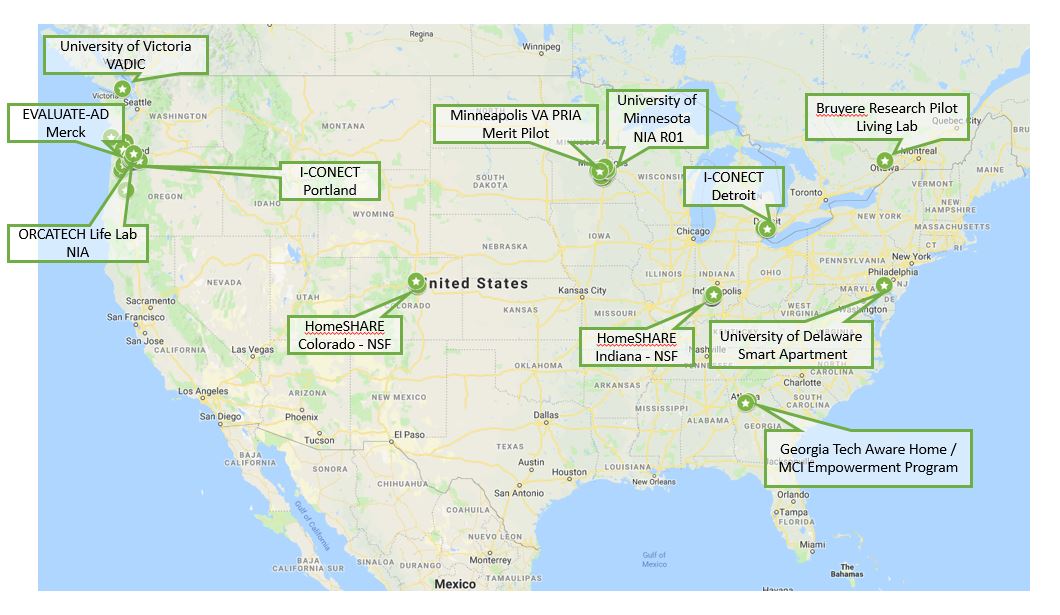For Industry and Community Partners
How collaborations support CART
Collaborations support the Initiative in reaching its goals and help enrich and advance aging research. From developing software to increasing the amount of home installations to brain storming how to reach new geographical or demographic targets, collaborations help expand CART's scalability, applicability and capabilities. Resources, research tools and data are shared securely. The Initiative strives to promote and maintain partnerships that are open, sustainable, multidimensional, and holistic, and which focus on senior independent living research.
Latest developments
This NSF-supported initiative, organized by the University of Colorado, University of Virginia and Indiana University, aims to design, develop and evaluate home-based technologies for aging in place. CART is collaborating on developing core technologies and new algorithms.
PI: Kay Connelly, PhD - University of Indiana
Learn more about HomeShare.
The CART platform is being evaluated for integration into the MCI Empowerment Program, which is being developed by Emory University and Georgia Tech. The CART in-home monitoring platform is being used in a laboratory setting to compare against other in-home monitoring components and is planned to be used in the homes of MCI Empowerment Program participants to deliver in-home interventions.
PI: Allen Levy, MD, PhD - Emory University
The EVALUATE-AD study is using the CART platform to assess the feasibility of using a home-based monitoring system to identify changes in meaningful outcomes in patients who have mild cognitive impairment (MCI) or are in the early stages of Alzheimer's disease.
We plan to compare the outcome measures of the digital biomarker data to the conventional clinical outcome measures being collected. The final goal is to identify objective behavioral-functional signatures of patients on cholinesterase inhibitor or related therapies.The EVALUATE-AD study is supported by Merck and the NIH.
PI: Jeffrey Kaye, MD - OHSU
The AGING-WELL study, based in Oregon and Minnesota, is using the CART platform to identify and track meaningful change in the daily home-based activities of community-dwelling older adults who are at risk of developing Alzheimer’s disease. Researchers are using the platform to establish the most robust remotely monitored IADL variables and combinations of variables to discriminate between mild cognitive impairment (MCI) and intact cognition based on sensitivity, specificity, accuracy. The study is supported by the NIH.
PI: Adriana Seelye, PhD - Minneapolis VA / University of Minnesota
The PRIA (Promote Independent Aging) study is using the CART platform to assess the home-based activities of aging veterans living in the Minneapolis, St. Paul, Bloomington MN area. The study is exploring if the platform presents a feasible way to measure cognitive and functional decline in aging veterans and if its algorithms are generalizable for use within this population. Researchers hope to use the platform to improve early detection, diagnosis and monitoring of MCI and Alzheimer’s disease. The study is supported by the VA.
PI: Adriana Seelye, PhD - Minneapolis VA / University of Minnesota
CART Platform Installations at Partner Sites
Several academic institutions and research organizations use the CART technology platform - or parts of the CART technology platform - for their research initiatives. Below is a map of CART partners across the United States and Canada who use the CART platform.
